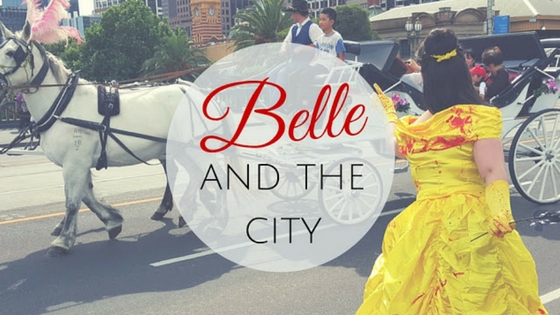Is it easy being a foreigner?
If it's true that 'nomen est omen' (= your name is your destiny) then why don't I feel 'out of place' in Australia? Despite what most people assume, Barbara is more than an old fashioned name: it means 'one whom cannot speak' and, as barbarians ultimately were, 'foreigner'. Even so, being a foreigner in a city like Melbourne, mostly populated by Italians, Greeks, and Asians, is not a real challenge.
Because my nose looks quite European and my lovely lady lumps are definitely Mediterranean, I can understand why people pronounce Barbara a' la Greek, or ask me where exactly in Italy my parents are from. Someone asked me if I could speak Italian! I'm cool with all of this, it adds some fun to my daily life. What most people seem to miss is that I am, above all, Italian. Not Italian by origin. I mean literally. I still have ancient ruins dust under my shoes and bread crumbs in my pockets. While walking hand in hand with the boyfriend I sometimes let go of his hand to gesture something.It really happened, don't judge me!
I am just being overly dramatic here. I don't mind when people ask if my accent is German, or if I'm Persian. I've learned years ago that it's easy to play the foreigner card when you have a return ticket to go home and when, let's face it, you belong to that category often associated to 'white privilege'.
During my experience abroad I noticed there are three kinds of foreigners, or expats.
Belong to the first category those who are not interested in learning anything about a new place, not even the language. Mostly young people, they might have money and other plans for their future so they end up socializing only with people who come from their same country. No one really knows how they feel living so far from home, or if it was their choice. If it's a long holiday or if they're studying, or both.
Typology that can be described as in love with the idea of travelling, exploring, visiting new places and meeting new people. They chose to move abroad or to travel a lot and they never regret it. Unless they are Italians craving real pizza. They would try every new thing and swear they liked it better than something familiar. They would have plenty of stories about all the places they visited and make you really want to travel around the World. Also make you wonder if couch-surfing is actually safe to do, and how it is possible to live months in a tropical jungle with broken shoes and a backpack.
These are people who were too young to remember their home country, or haven't seen it at all, and grew up in a place they now call home. At the same time their skin colour does not match their language, nor habits, and yet it plays a major role in their daily life. Part of this category are those were forced to leave their homes and are trying to get accepted in a new environment while mourning their losses. If they try to blend in they might feel like betraying their origins, families, and traditions. At the same time, if they don't fit in they will be treated like outcasts.
The result to these delicate situations, unfortunately, depends on the city they are living in, and on the people they share it with. Some places are known to be more open minded, taking the best of all cultures and becoming a real melting pot; other places, instead, would rather build a wall. Which is highly ironic in a world where globalisation is the key and acceptance is the door frame.
Image: via
Because my nose looks quite European and my lovely lady lumps are definitely Mediterranean, I can understand why people pronounce Barbara a' la Greek, or ask me where exactly in Italy my parents are from. Someone asked me if I could speak Italian! I'm cool with all of this, it adds some fun to my daily life. What most people seem to miss is that I am, above all, Italian. Not Italian by origin. I mean literally. I still have ancient ruins dust under my shoes and bread crumbs in my pockets. While walking hand in hand with the boyfriend I sometimes let go of his hand to gesture something.
I am just being overly dramatic here. I don't mind when people ask if my accent is German, or if I'm Persian. I've learned years ago that it's easy to play the foreigner card when you have a return ticket to go home and when, let's face it, you belong to that category often associated to 'white privilege'.
During my experience abroad I noticed there are three kinds of foreigners, or expats.
- The Tourist:
Belong to the first category those who are not interested in learning anything about a new place, not even the language. Mostly young people, they might have money and other plans for their future so they end up socializing only with people who come from their same country. No one really knows how they feel living so far from home, or if it was their choice. If it's a long holiday or if they're studying, or both.
- The Wonderlust:
Typology that can be described as in love with the idea of travelling, exploring, visiting new places and meeting new people. They chose to move abroad or to travel a lot and they never regret it.
- The Ethnic Citizen:
These are people who were too young to remember their home country, or haven't seen it at all, and grew up in a place they now call home. At the same time their skin colour does not match their language, nor habits, and yet it plays a major role in their daily life. Part of this category are those were forced to leave their homes and are trying to get accepted in a new environment while mourning their losses. If they try to blend in they might feel like betraying their origins, families, and traditions. At the same time, if they don't fit in they will be treated like outcasts.The result to these delicate situations, unfortunately, depends on the city they are living in, and on the people they share it with. Some places are known to be more open minded, taking the best of all cultures and becoming a real melting pot; other places, instead, would rather build a wall. Which is highly ironic in a world where globalisation is the key and acceptance is the door frame.
Image: via



Comments
Post a Comment